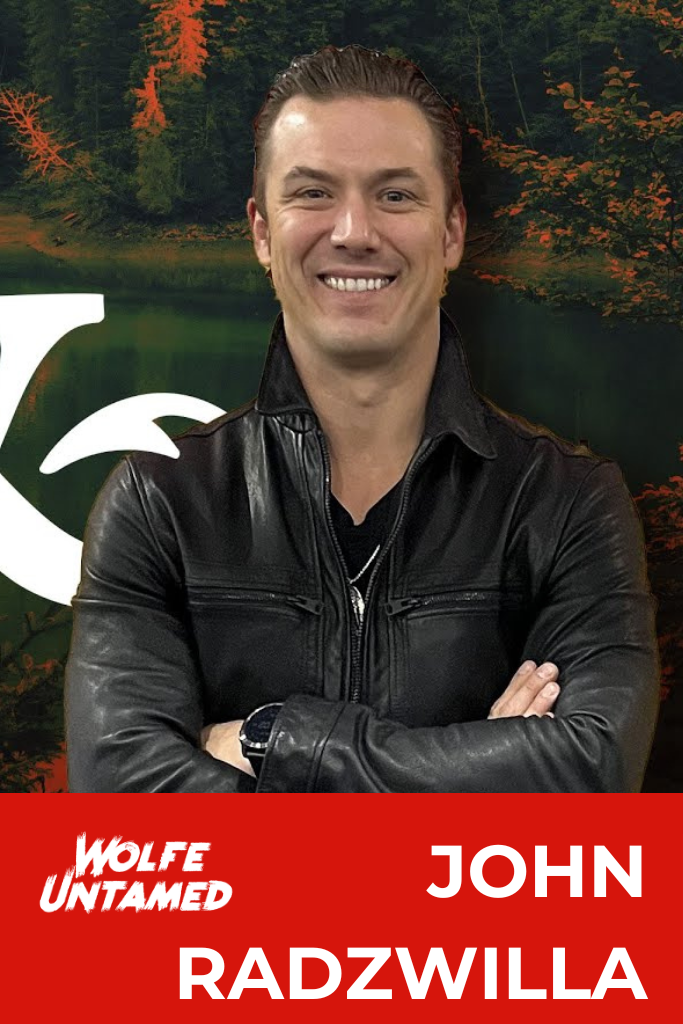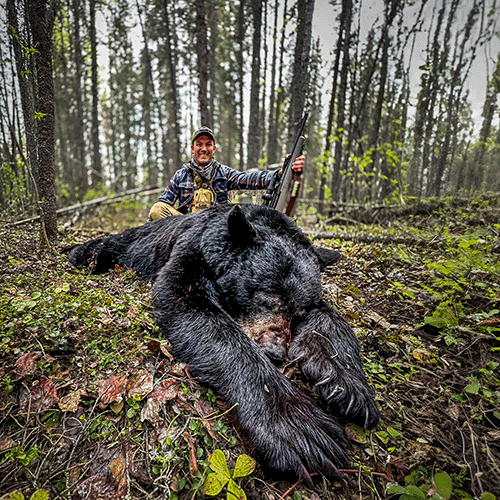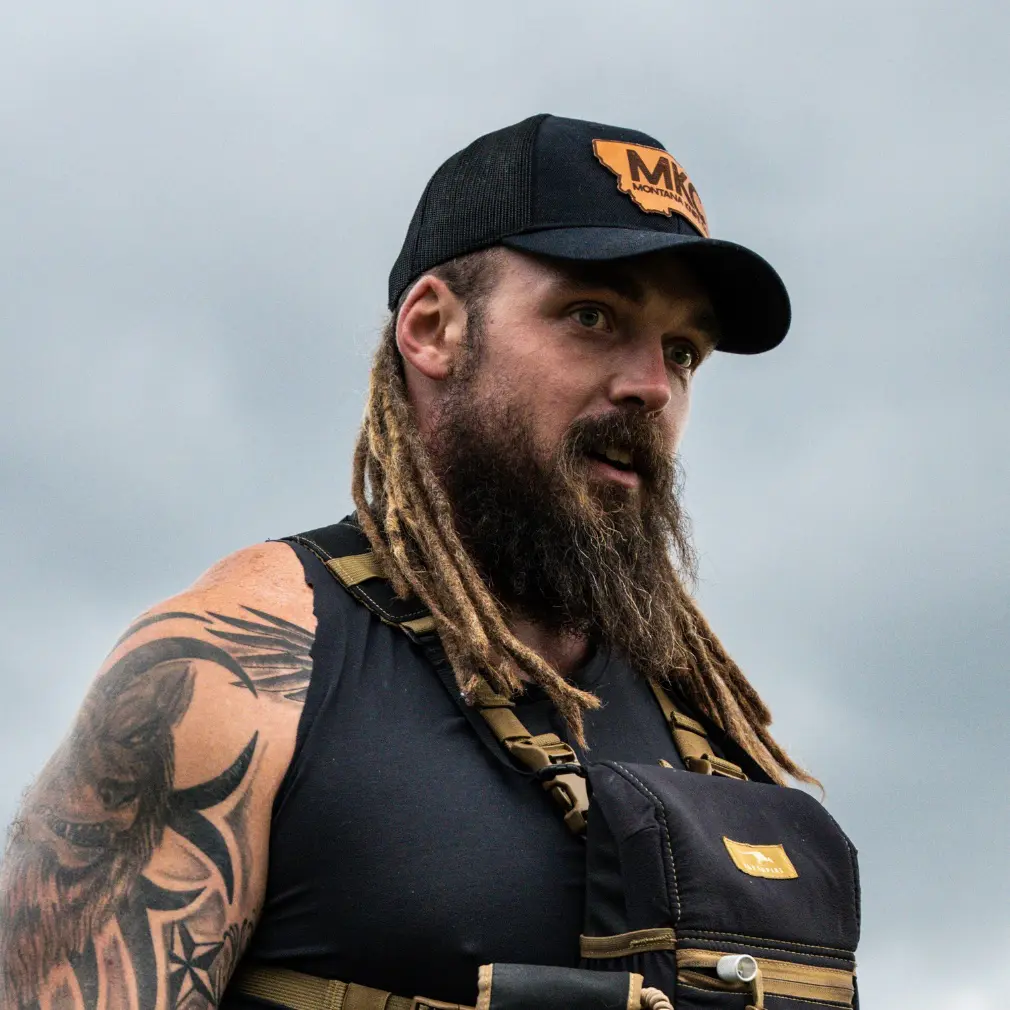Derek Wolf, a Super Bowl champion and former NFL player, hosts John Radzwilla, creator and owner of Hook and Barrel magazine, on the Wolf Untamed podcast. Hook and Barrel is described as the “GQ for the outdoor community,” aiming to be a lifestyle and entertainment magazine for outdoorsmen that is different from traditional hunting publications.
Radzwilla, who grew up in the Pocono Mountains of Northeastern Pennsylvania with a mix of city and country influences, noticed a gap in the market for a lifestyle magazine catering to the outdoor community. He observed that while there were many traditional hunting and fishing magazines, there wasn’t one that combined that world with the aesthetic and approach of publications like GQ or Maxim. This led him to conceptualize Hook and Barrel, which he started with his wife, Natalie, who is now the COO. Radzwilla believes that a degree of “ignorance was bliss” in starting the magazine, as not knowing the traditional way of doing things in the industry allowed him to approach it with fresh eyes and challenge existing norms. He states, “I just looked at things and said, how do you do this? Oh, that’s a really dumb way of doing this. Why? Why are you doing it that way? Well, ’cause it’s how we always have done it. Like, well, that’s why your business is going outta business. Like, that’s why people keep saying print’s dead. Like, you’re insane”.
Both Wolf and Radzwilla express concern about the decline in hunter numbers and the need to attract a younger, more diverse demographic to the outdoors. Radzwilla highlights that while conservation groups focus on habitat and species, they haven’t effectively conserved the hunter themselves. He believes that engaging young dads (35-40 years old) is crucial, as they will then introduce their children to the outdoors.
A significant point of contention for Wolf is the perceived lack of action from large conservation organizations. He criticizes them for auctioning off tags for millions of dollars but being silent on legislative issues like mountain lion bans or making hunting and fishing a constitutional right. Wolf argues that hunting is conservation and that these organizations should be using their resources to protect hunting rights and access to public land, rather than what he sees as lining their own pockets. He points to the increasing cost of hunting, citing the example of a Utah elk tag costing nearly $3,000 on public land, and potentially $50,000 with landowner tags and guides, making it a “rich man’s game” and pushing the average person out. Radzwilla agrees that while some organizations do good work, they often don’t get involved when things become challenging or expensive on the legislative side. He emphasizes the importance of “charity starts at home” and focusing on conservation efforts in America.
Radzwilla also takes issue with the “old white man club” mentality he observes in the outdoor industry. He believes this insular mindset excludes a diverse population that is interested in hunting and fishing. He shares an anecdote about a pitch he received from a woman whose father didn’t allow women at deer camp, which he finds appalling. Hook and Barrel aims to be inclusive and attract people who may not even hunt or fish, with the goal of moving those in the “anti” crowd or the middle ground towards the hunting and fishing lifestyle through education and by showcasing the broader lifestyle aspects of the outdoors. Radzwilla states, “If I could get people from the middle over the hunting and fishing side, that’s a huge win. And if I could get somebody from the anti crowd by erasing the ignorance that’s being put out there… If I could convince them or show them that we are not what we’re being painted to be, if I can move them to the center, I’ve now got them in a holding pattern and eventually I could get them over the hunting, fishing, shooting side of things. And that’s really my goal”. He believes that presenting the lifestyle and not solely focusing on the kill is important.
Wolf echoes this sentiment, sharing his own experience of having an absolute blast on elk hunts even when he didn’t kill anything. He explains that the antis often misunderstand that hunting isn’t just about killing; it’s about the experience, the suffering, the camaraderie, and the time spent in nature. He recounts a powerful anecdote about changing a woman’s mind about mountain lion hunting by explaining the conservation aspect and the importance of managing populations, highlighting that education, rather than confrontation, is key. He contrasts this with the negative impact of hunters who post graphic photos online or engage in unethical behavior, which provides “ammunition” for the anti-hunting crowd.
Both Wolf and Radzwilla express frustration with the infighting and judgment within the hunting community itself, such as debates over crossbows versus vertical bows or different types of firearms. They argue that all hunters should be on the same team and stick together against those who oppose hunting. Wolf also points out the double standard where some people are fine with bird hunting but judge those who hunt larger game. He shares an example of how he was careful about the image he posted of a mountain lion he killed, cleaning it up to avoid unnecessary backlash, and emphasizes the need to “think before we act”. He compares the negative actions of a few hunters, like the widely criticized incident of a man running over and dragging a wolf, to the destructive behavior seen in some protests, emphasizing that these actions give the entire community a bad name.
The conversation also delves into the importance of mindset and drive for success, both in athletics and business. Radzwilla’s company mantra, “challenge everything, then do the unexpected,” reflects his belief in constantly pushing boundaries and seeking innovation. He shares how a challenge from a competitor early on fueled his determination to succeed, stating, “I’m just gonna like freaking bury you, man,” and that he is still motivated by people who doubted him. He relates this to the “chip on his shoulder” mentality he’s observed in elite athletes like Tom Brady and Michael Jordan. Wolf resonates with this, admitting he sometimes fabricates stories in his head to create a driving rage, a tactic he used in football that he’s had to temper in retirement. They both agree that being elite at anything requires a certain level of “psycho” or obsession.
A key element of their success, they both agree, is their partnership with their wives. Radzwilla highlights his wife Natalie’s dedication and work ethic, calling her a “savage” and a critical part of Hook and Barrel. Wolf expresses similar admiration for his wife, describing her as a “killer” and a natural-born leader who thinks like a chess player, complementing his more impulsive nature. They both feel blessed to have partners who support and enhance their endeavors.
Looking towards the future, Radzwilla is focused on the digital evolution of Hook and Barrel. He is particularly excited about the development of an AI-powered platform called “Guide” that will personalize content for users, send recommendations via SMS or email, and even monitor user behavior on the website to predict future interests. He believes the outdoor industry is often behind the curve in technology and sees AI as a way to modernize and attract a younger audience. He also envisions a future where users can interact with a 4K animated AI personality on the Hook and Barrel website. Radzwilla’s ultimate goal is to elevate Hook and Barrel to the level of major lifestyle publications like Sports Illustrated, GQ, and Rolling Stone, normalizing hunting and fishing in a positive way to a wider audience. He states, “How can we normalize hunting and fishing in an appropriate manner and take that to the masses?”.
Wolf strongly supports the integration of technology in the outdoor industry, arguing that people are already using mapping apps and online resources for hunting and fishing. He believes that AI could be used to help plan entire hunts, analyzing data like weather and terrain to provide the best chances of success, making it easier for new people to get into the sport.
Both agree on the importance of physical fitness for hunting, particularly for challenging hunts like elk hunting in the Rockies. Wolf, drawing on his NFL experience, compares the feeling of harvesting a bull elk to sacking Tom Brady in a championship game, emphasizing the incredible rush of accomplishment that comes from pushing oneself physically and mentally. Radzwilla adds that this focus on physicality, championed by figures like Cam Hanes and Joe Rogan, has made hunting an “elite sport” and inspired a younger generation to be more active.



